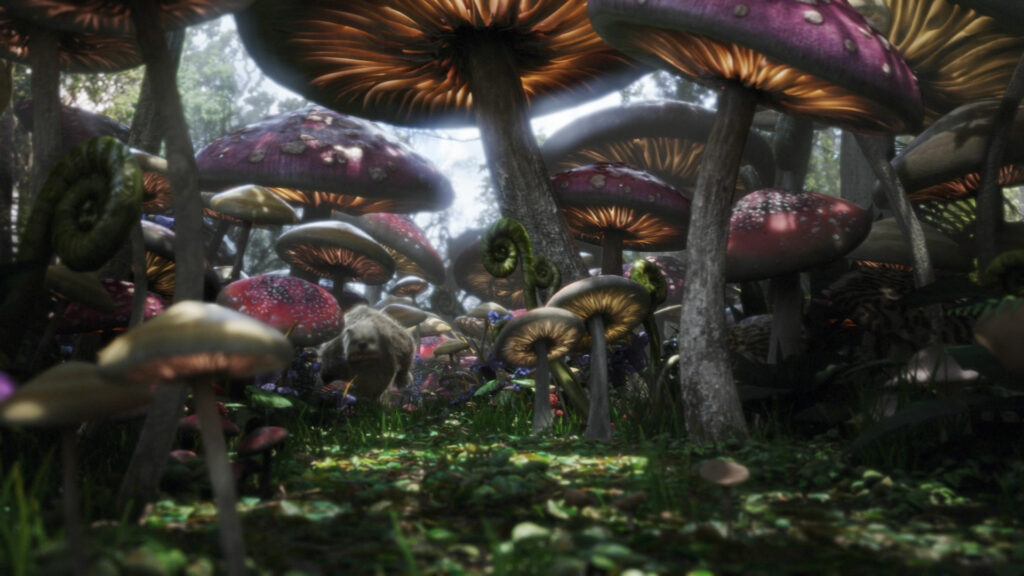When Alice from ‘Alice in Wonderland’ falls down a rabbit hole, she enters into a whole new world, the wonderland. Here, she drank a potion and suddenly shrank down to a size which was way smaller than that of her surroundings and later she consumes some items from a box and suddenly her size blows up so much that she can barely fit into the room.
Alice in Wonderland Syndrome, Types & Treatment
Well, this phenomena may be experienced by people in real life but the feeling is neither pleasurable nor thrilling. It is known as Alice in Wonderland Syndrome.
What is Alice in Wonderland Syndrome?
The term Alice in Wonderland Syndrome (AiWS) was coined in 1955 by British psychiatrist John Todd, which is the reason why this condition is also known as Todd’s Syndrome. In this rare neurological syndrome, people may perceive that they have shrunk down so much that the object in their room appear way larger than they are, or vice versa. The passage of time may also seem like an illusion.
Our Wellness Programs
Symptoms of Alice in Wonderland Syndrome
A person with Alice in Wonderland Syndrome may experience perceptual distortions with respect to vision, hearing, sensation and touch. They may also lose the sense of time – it may seem to pass slowly (similar to an LSD experience) and might result in a distortion of the sense of velocity. These episodes do not last for a very long time and cause no disabilities. AiWS is a rare mental health disorder and its symptoms are usually episodic in nature. It occurs for short periods of time during the day (i.e. AiWS episodes), and the symptoms might last between 10 seconds up to 10 minutes for some patients.
Looking for services related to this subject? Get in touch with these experts today!!
Experts

Banani Das Dhar

India
Wellness Expert
Experience: 7 years

Devika Gupta

India
Wellness Expert
Experience: 4 years

Trupti Rakesh valotia

India
Wellness Expert
Experience: 3 years

Sarvjeet Kumar Yadav

India
Wellness Expert
Experience: 15 years

Shubham Baliyan

India
Wellness Expert
Experience: 2 years

Neeru Dahiya

India
Wellness Expert
Experience: 12 years
Causes of Alice in Wonderland Syndrome
Research has found that migraines and Epstein-Barr virus infections are most common causes of this syndrome. Other causes could include use of certain medications or substances such as marijuana, LSD, and cocaine, amongst others. Physical problems such as head injury, stroke, epilepsy, certain psychiatric conditions or other infectious influenza A virus, mycoplasma, varicella-zoster virus, Lyme neuroborreliosis, typhoid encephalopathy and streptococcus pyogenes might also lead to Alice in Wonderland Syndrome.
Types of Alice in Wonderland Syndrome

There are 3 types of Alice in Wonderland Syndrome:
Type A
In this type, a person may feel that the size of their body parts is changing.
Type B
In this type, a person may experience perceptual distortions relating to their environment where the objects around them may seem too big (macropsia) or too small (micropsia), too close (pelopsia) or too far away (teleopsia). These are the most commonly reported perceptual distortions. They may also incorrectly perceive the shape, length and width of certain objects (metamorphopsia), or create an illusion of fixed objects moving.
Type C
In this type, people may experience visual perceptual distortions about both themselves as well as their surroundings.
Treatment for Alice in Wonderland Syndrome
Alice in Wonderland Syndrome is neither included in the DSM 5 (Diagnostic Statistical Manual) or the ICD 10 (International Classification of Disorders). The diagnosis of this syndrome is tricky. The symptoms of this syndrome may be confused with that of dissociative, psychotic or other perceptual disorders. A neurologist and other mental health professional, such as a psychiatrist, should be consulted if symptoms keep occurring frequently. Even though there is no specific criteria, blood tests and various brain scans are used among various other tests to help them make a diagnosis of this syndrome. The treatment of this syndrome is usually done with medications if it does not get treated on its own (which is what happens in most cases). The treatment may also heavily depend on its cause and tackling that first in order to manage this syndrome.
Although Alice in Wonderland Syndrome may not be mentioned in the DSM or the ICD, this should not minimize the struggle of people who do suffer from this syndrome. In many cases, Alice in Wonderland Syndrome might result in anxiety and depression as well. Such complaints and symptoms should be taken seriously. It is important to seek help from a mental health professional in order to diagnose the problem, find out the cause and provide effective treatment to the person in need.


 Conflict Management in Relationships
Conflict Management in Relationships

 Healing from Heartbreak
Healing from Heartbreak
 Coping With Anxiety
Coping With Anxiety
 Get Started With Mindfulness
Get Started With Mindfulness
 Healing With Meditation
Healing With Meditation







